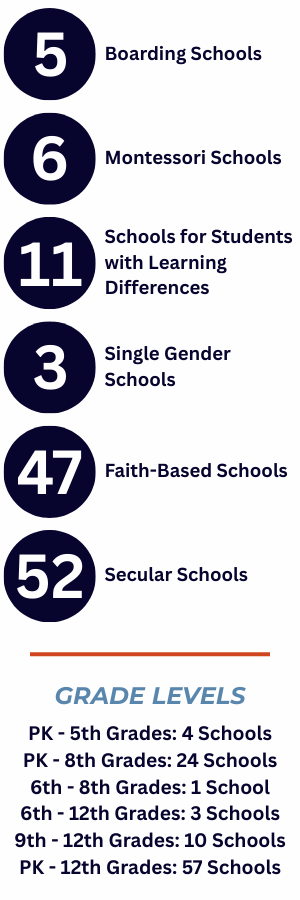Empowering Educators: Insights for Independent School Leaders
by Coach-in-Residence Michelle Bostian
Welcome to Empowering Educators, your monthly source of inspiration, strategies, and insights designed specifically for the dedicated teachers, staff, and administrators of independent schools.
Authored by NCAIS's coach-in-residence, Michelle Bostian, each month we delve into pressing leadership topics, offering practical advice and thought-provoking perspectives to help you navigate the unique challenges of the independent school environment.
Whether you're leading a classroom, a department, or the entire school, our goal is to empower you with the knowledge and tools you need to foster a thriving educational community. Join us on this journey to elevate your leadership skills and make a lasting impact on your school.
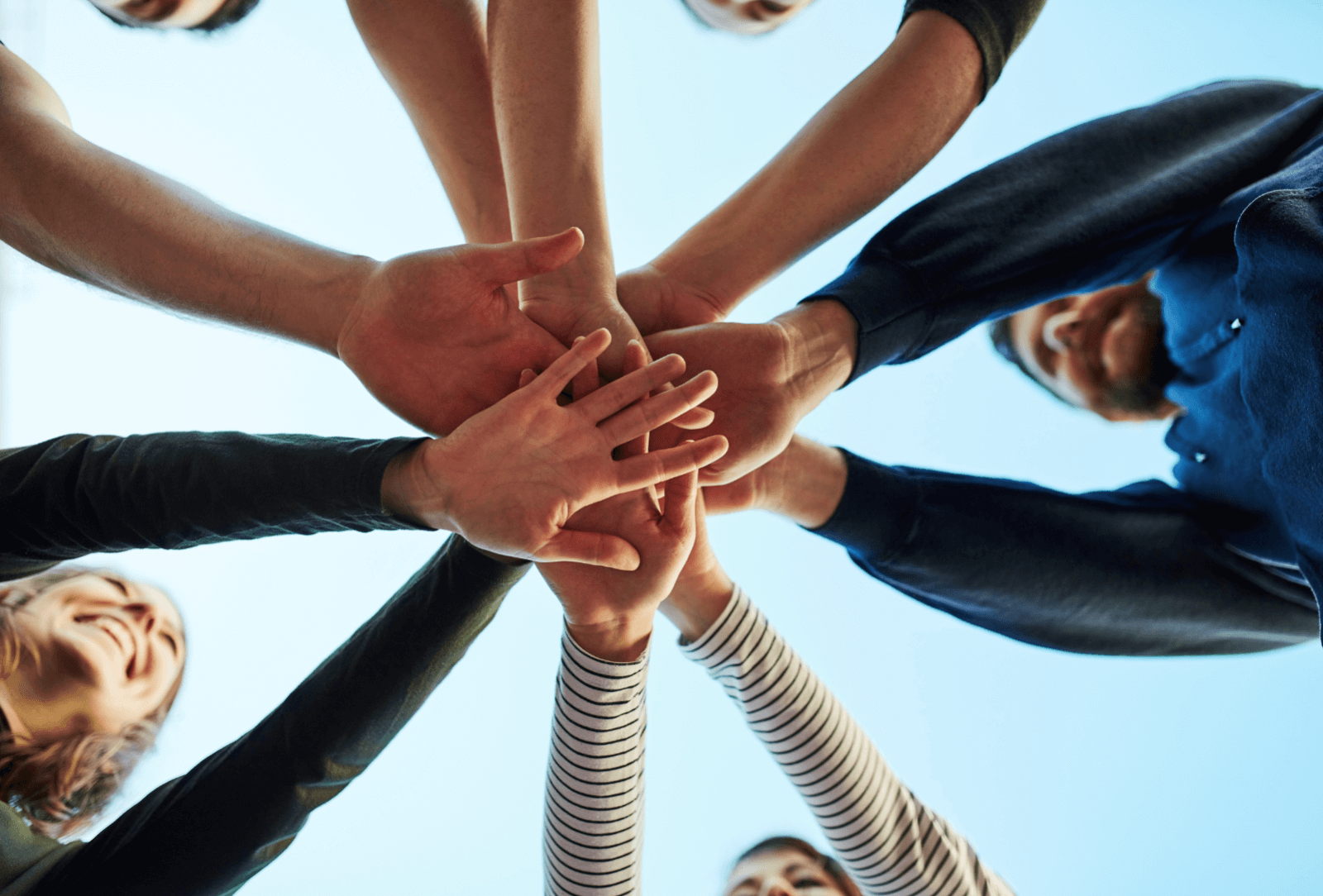 When I tell people I’m an independent project manager, they often imagine me hunched over a spreadsheet, quietly checking off tasks in isolation. And yes, sometimes that’s true. But what truly drives me—what makes my work meaningful and sustainable—comes down to three essential psychological needs: autonomy, belonging, and competence.
When I tell people I’m an independent project manager, they often imagine me hunched over a spreadsheet, quietly checking off tasks in isolation. And yes, sometimes that’s true. But what truly drives me—what makes my work meaningful and sustainable—comes down to three essential psychological needs: autonomy, belonging, and competence.
These aren’t abstract concepts. They’re the foundation of my motivation. They are also the same needs that schools and mission-driven organizations must meet if they want to inspire and retain talented people.
Autonomy: The Freedom to Work and Learn My Way
One of the things I value most in my role with Bostian Coaching & Consulting is the trust I’m given. There’s no micromanagement. I’m empowered to manage my own time, prioritize tasks, and shape the direction of my work.
I remember once when we were redesigning the website. I suggested moving away from a traditional consulting layout toward a more human-centered, narrative approach. I wanted something warmer and more intuitive that reflected the heart of the work. Michelle’s response was immediate and enthusiastic: “Yes, this feels right.” Seeing that vision come to life and watching how it helped others better understand what we offer was deeply rewarding. That moment affirmed not just my creative instincts, but also the deep trust I’m given to bring ideas to life in my own way.
That sense of trust is what keeps me curious and energized. When people are given ownership over their work, they don’t just complete tasks. They take initiative. They find better ways of doing things. In schools and workplaces, autonomy is often underestimated, yet it’s one of the most powerful ways to keep people engaged.
Belonging: Feeling Invested Because I’m Included
Autonomy alone isn’t enough. I also need to feel like I’m part of something, like I’m not just a helper, but a partner. At Bostian Coaching & Consulting, I’m included in early planning conversations, strategic discussions, and moments of reflection and celebration. My input isn’t just welcomed; it’s expected.
There’s one gesture I’ll never forget. One day, a stack of books appeared on my doorstep— titles related to a topic I had casually mentioned being passionate about. There was no assignment attached, no deadline, just genuine encouragement and support for my learning. That kind of thoughtfulness quietly but powerfully communicated, “You matter here.”
Belonging isn’t about surface-level culture. It’s about being seen, heard, and included. In a school, that might look like inviting teachers into decisions about curriculum or professional development. In a company, it might mean making sure staff have real influence on how things get done. When people feel like their presence and input matter, they naturally become more invested.
Competence: Playing to Strengths and Growing Over Time
The third ingredient in my motivation is competence. My work is matched to my strengths -- things like content development, marketing strategy, and project management. I’m regularly asked to take on projects that align with what I do best.
But just as importantly, I’m given space to grow. When a new tool or system comes along, the question isn’t “Do you already know how to use this?” It’s “Do you want to learn?” That simple reframing makes a huge difference. It sends the message that growth is part of the
job, not something extra you’re expected to handle alone.
For leaders in education or business, this is a critical insight. People want to feel capable, but they also want to stretch into new territory. Professional development shouldn’t be a checkbox. It should be a culture. When you give people the chance to build new skills and support them along the way, you get loyalty in return.
What It All Means
The way I work is not just a result of my personality or work ethic. It’s the product of an environment that supports me in the right ways. An environment where I feel trusted, included, and capable.
When schools and companies meet the psychological needs of autonomy, belonging, and competence, everything changes. Engagement goes up. Retention improves. People stop doing the bare minimum and start giving their best.
If you’re a school leader, ask yourself: Are your teachers trusted to make decisions in their classrooms? Do they feel connected to a broader purpose? Are they growing in ways that excite them?
If you run a business, think about whether your team feels like a team or just a collection of individuals. Do your people feel ownership over their work? Do they feel like their contributions really matter?
The answers to those questions can make all the difference.
I know, because I live them every day. I’m not just working for a business. I’m building something with Michelle Bostian, someone who creates the conditions for people to thrive. And that makes all the difference.
Amanda Fonorow is an independent project manager, operations strategist, and creative problem solver with a background in knowledge management and nonprofit leadership. She supports mission-driven organizations (including NCAIS) through thoughtful content development, strategic marketing, and systems that make great work possible.
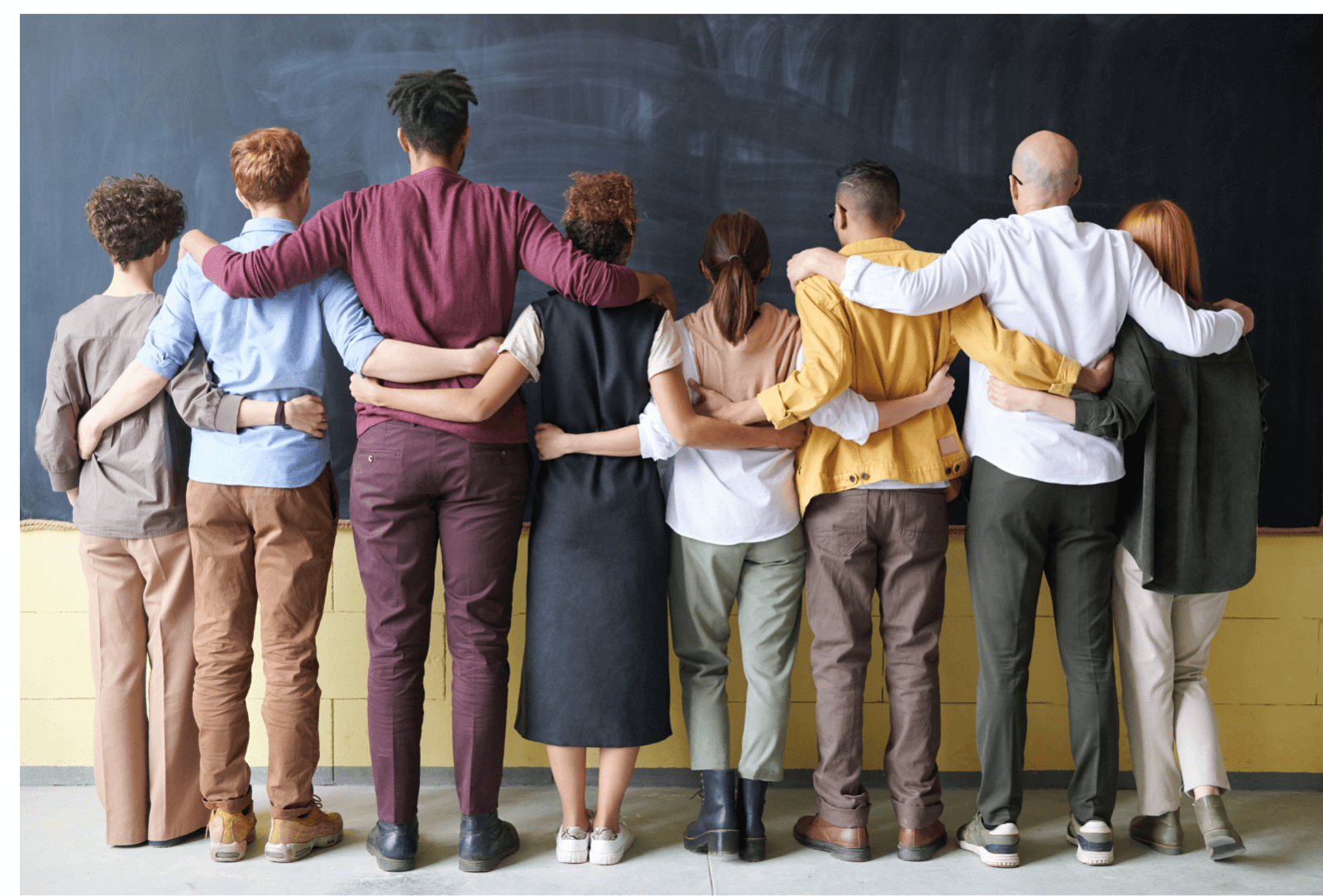 In recent years, discussions around diversity, equity, and inclusion (DEI) have become politically charged, with some companies scaling back or restructuring their initiatives. In early 2025, businesses like Target, Meta, and Lowe’s announced changes to their DEI strategies, citing shifts in legal and business priorities.
In recent years, discussions around diversity, equity, and inclusion (DEI) have become politically charged, with some companies scaling back or restructuring their initiatives. In early 2025, businesses like Target, Meta, and Lowe’s announced changes to their DEI strategies, citing shifts in legal and business priorities.
But independent schools operate differently. Their mission extends beyond responding to corporate trends; it focuses on equipping young individuals to succeed in an increasingly interconnected and complex global environment. At its core, fostering respect, inclusion, and opportunity isn’t about politics. It’s about ensuring that every student develops the skills, character, and confidence to lead with integrity and contribute meaningfully to society.
The Role of Character and Social-Emotional Learning
Independent schools have long recognized that success isn’t just measured by grades or test scores. The ability to navigate relationships, manage emotions, and lead with empathy is just as critical. Social-emotional learning (SEL) helps students build resilience, take responsibility for their actions, and strengthen their ability to listen, collaborate, and problem-solve.
When students engage with different perspectives, form meaningful relationships, and stand up for fairness, they’re not engaging in ideology—they’re learning to live out their values in a way that shapes their character and prepares them for the real world. A well-rounded education doesn’t teach students what to think; it teaches them how to think, how to engage with others respectfully, and how to lead with both courage and compassion.
Moving Beyond the Noise
Some critics of DEI argue that it creates unnecessary divisions or challenges traditional ideas of merit and achievement. But at its core, this work has never been about diminishing excellence—it has always been about expanding opportunity. Every student, regardless of background, learning style, or ability, should have the support and resources needed to reach their full potential.
Independent schools, with their strong commitment to student-centered learning, are uniquely positioned to move beyond the noise and focus on what truly matters: equipping young people to become confident, capable, and ethical leaders. This is not about exclusion or ideology, it’s about making sure every student is seen, supported, and given the tools to succeed.
Preparing Students for the Future
Independent schools have never been in the business of following trends. Their goal is to prepare students for the world ahead -- a world where cultural competency, adaptability, and the ability to collaborate across differences will be essential. Employers recognize the value of these skills, and they are just as critical in civic life and personal relationships.
While language and terminology may evolve, the commitment to fostering inclusive, supportive, and high-quality learning environments will remain. Because ultimately, education is about people. When students feel valued and empowered, they develop the confidence to face life’s challenges and the sense of responsibility to make a meaningful difference in their communities.
A Thought for the Future
For educators, leaders, and families in independent schools, the challenge ahead is not whether we support student growth; rather, it’s how we continue creating environments where every child can thrive. As society changes, the words we use may shift, but the underlying values—respect, inclusion, and opportunity—are timeless. At its best, education shapes not just what students know, but who they become. And that is work worth protecting.
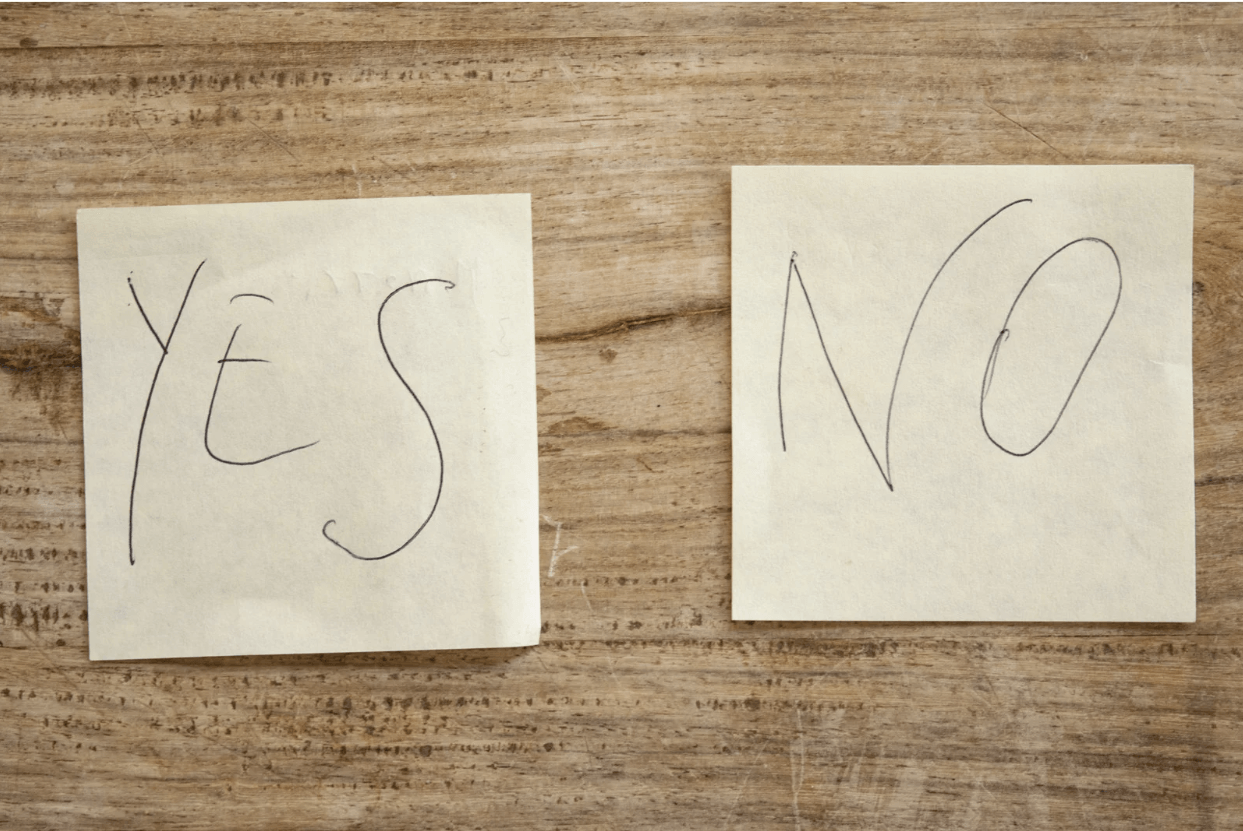 High-performing leaders are often highly skilled in their roles, yet many still struggle with saying "no." The real issue, however, is not their ability to decline requests—it is their difficulty in saying "yes" to what truly matters.
High-performing leaders are often highly skilled in their roles, yet many still struggle with saying "no." The real issue, however, is not their ability to decline requests—it is their difficulty in saying "yes" to what truly matters.
Every time you say yes to something, you are inherently saying no to something else. That means saying no isn’t actually the problem—it’s the natural result of saying yes to something else.
The Key to Saying Yes
Consciously choosing what you say yes to allows everything else to fall into place. Consider your core values—perhaps family, faith, health, or financial security. Prioritizing these values each week means making time for family dinners, committing to regular workouts, sticking to your budget, or setting aside time for spiritual practices. When other requests come in, it will be easy to say "I have other plans" or "I have a prior commitment."
The Power of Planning
Saying yes in advance helps shape your schedule and prevents last-minute scrambling. Many leaders default to saying no without realizing it:
- "I don’t have time."
- "I can’t do that for myself."
- "I'll try to fit in once I finish all this work."
When we become aware of these habits, we can begin to shift towards yes.
Practicing Yes
Saying yes to what truly matters—your well-being, commitments, and values—creates alignment in your life. When we lead with yes, things begin to fall into place, and saying no becomes effortless because we have already chosen what deserves our time and energy.
The Science Behind Yes
Saying yes to meaningful activities has a positive impact on our well-being. Engaging in value-aligned activities releases feel-good hormones like endorphins, which boost mood and overall fulfillment. Repeatedly reinforcing positive choices strengthens neural pathways, making it easier to continue prioritizing what matters most.
High-performing leaders don't need more strategies for saying no. They need a stronger practice of saying yes—to their priorities, their well-being, and their long-term success.
So, what will you say yes to this week?
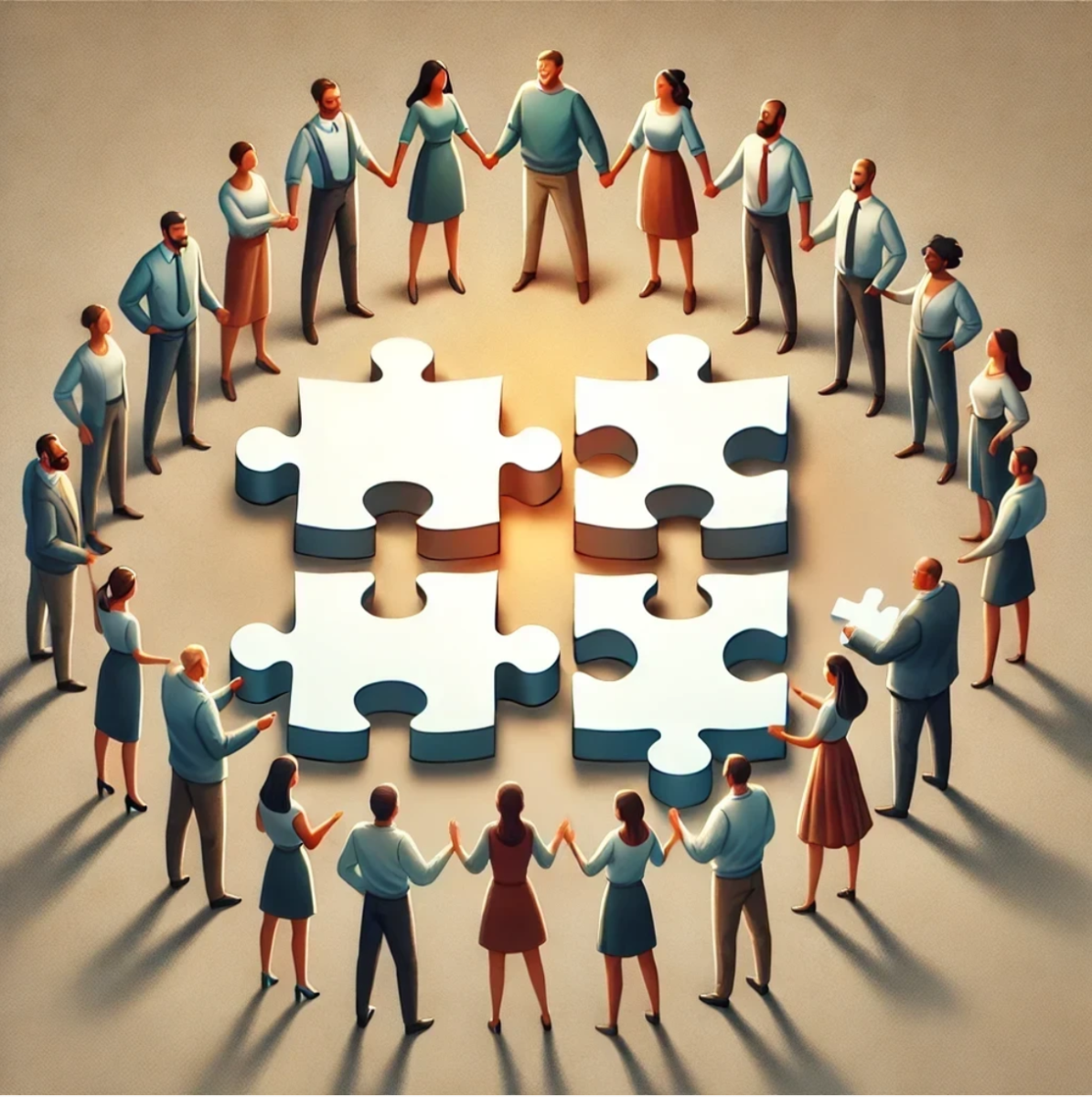 Common agreements are a popular tool in team dynamics. They’re the guiding principles that help groups align on how to work together—the "rules of engagement" for effective collaboration. From respecting meeting times to fostering open communication, common agreements create a shared understanding of what’s expected. They’re foundational for setting the tone and culture of a team.
Common agreements are a popular tool in team dynamics. They’re the guiding principles that help groups align on how to work together—the "rules of engagement" for effective collaboration. From respecting meeting times to fostering open communication, common agreements create a shared understanding of what’s expected. They’re foundational for setting the tone and culture of a team. The value of forming these agreements is undeniable. Taking the time to co-create them ensures that everyone has a voice in shaping the team’s operating norms. This process promotes buy-in, creates clarity, and lays the groundwork for accountability. When done well, common agreements make teams feel safer, more cohesive, and better equipped to handle challenges.
But there’s a catch. The real problem isn’t creating common agreements; it’s holding one another accountable to them. Too often, these agreements are written down, nodded at, and then ignored when the stakes get high or when enforcing them feels uncomfortable. Without accountability, the agreements lose their power and become just another item on the "nice to have" list, rather than a living, breathing part of the team’s culture.
The Accountability Gap
Why is it so hard for teams to hold each other accountable to their agreements? Several factors come into play:
- Discomfort with conflict: Addressing someone’s behavior often feels like conflict, and many team members avoid it out of fear of damaging relationships.
- Lack of clarity: Teams may not define what it means to "enforce" an agreement, leaving individuals unsure of how to act.
- Perceived hierarchy: Team members might believe it’s the leader’s job to address issues, not theirs.
How Teams Can Hold Each Other Accountable
Accountability starts with clarity and courage. Here are some practical steps teams can take to bring their agreements to life:
1. Normalize Accountability as a Shared Responsibility
From the outset, make it clear that accountability isn’t about "calling people out." It’s about supporting one another in staying true to the agreements that everyone helped create. When accountability is framed as an act of care rather than criticism, it becomes easier for team members to engage in it.
2. Build Accountability into the Agreements
When creating common agreements, include a discussion about how the team will address breaches. For example:
"If someone forgets an agreement, how do we want to remind them?"
"What’s the best way to check in with one another about how we’re doing?"
3. Use Simple, Direct Practices
Practical examples can help bring these ideas to life. Let’s take a common agreement: "Go directly to the person instead of around the person." Here’s how team members can hold each other accountable:
Scenario 1: A direct reminder If you notice a colleague venting to someone else instead of addressing the issue directly, you might say: “Hey, it sounds like you’re frustrated with Alex. Remember, we agreed to talk directly to each other. How can I support you in having that conversation?”
Scenario 2: Preemptive guidance If someone shares a concern with you that’s about another team member, you might respond with: “I hear you. It sounds like this is something you could bring up with Alex. Do you feel comfortable doing that? If not, let’s think about how to approach it together.”
Leaders and team members alike should model what accountability looks like. For example, if you make a mistake, acknowledge it and invite others to do the same. Demonstrate that holding yourself accountable is as important as holding others accountable.
5. Celebrate Progress
Accountability doesn’t have to feel heavy. Celebrate when team members successfully uphold the agreements or when someone bravely addresses an issue. Positive reinforcement builds confidence and encourages others to do the same.
Moving Beyond Words
Common agreements are a tool for alignment, but their power lies in how they’re practiced. Teams that hold each other accountable don’t just talk about collaboration; they live it. By normalizing accountability, creating clear pathways for action, and modeling the desired behaviors, teams can transform their agreements into a culture of trust, respect, and collective responsibility. If your team could use support in navigating these challenges or building a stronger culture of accountability, consider reaching out to Bostian Coaching and Consulting. We specialize in helping teams align, build trust, and thrive together.
Accountability isn’t always easy, but it’s always worth it. Because when teams truly commit to their agreements, they don’t just work together—they thrive together.
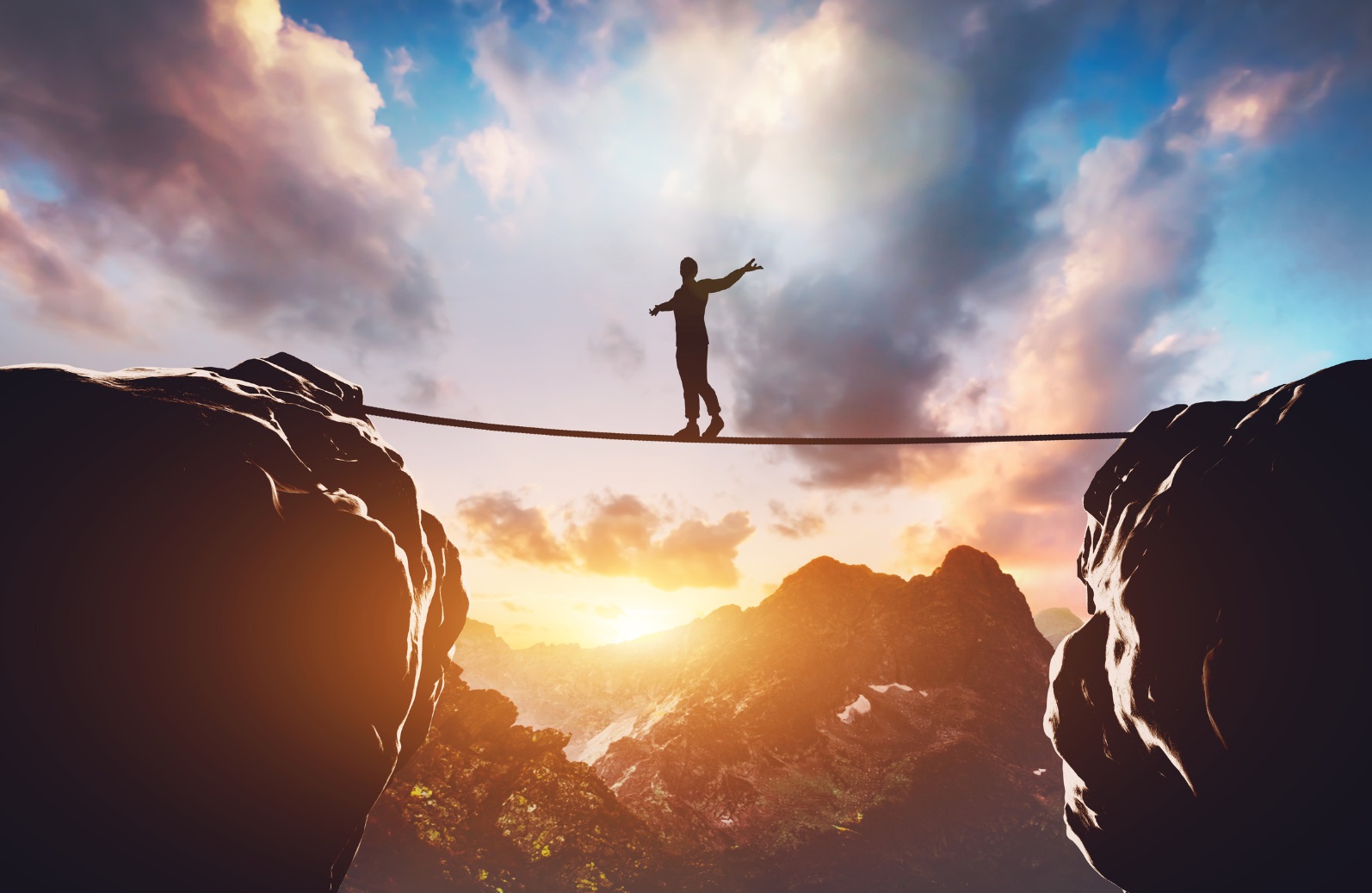 In the ever-evolving landscape of leadership, the balance between executive presence and appropriate vulnerability often feels like walking a tightrope. Leaders frequently equate executive presence with self-control or, more specifically, the modulation of their emotions. While self-control is indeed a cornerstone of effective leadership, there is an often-overlooked counterpart to this skill: the courage to embrace vulnerability.
In the ever-evolving landscape of leadership, the balance between executive presence and appropriate vulnerability often feels like walking a tightrope. Leaders frequently equate executive presence with self-control or, more specifically, the modulation of their emotions. While self-control is indeed a cornerstone of effective leadership, there is an often-overlooked counterpart to this skill: the courage to embrace vulnerability.
I see many leaders who have over-rotated on self-modulation—reining in every emotional response, cloaking their feelings, and holding themselves to an unrelenting standard of composure. The result? A persona that can appear distant, overly guarded, or inauthentic. For some, the pendulum swing toward control is necessary; they need to temper language or reactions that might otherwise come across as too intense or
reactive. Yet, for just as many leaders, executive presence means stretching into their capacity for vulnerability—showing a degree of openness that fosters connection and trust.
The question I often hear is, "How much vulnerability is appropriate in the office?" It’s a valid concern. Vulnerability in leadership isn’t about airing every worry, admitting defeat at the first sign of struggle, or using emotional expression as a means of oversharing. Instead, appropriate vulnerability is about strategically revealing enough of yourself to humanize your leadership, foster psychological safety, and build stronger connections with your team.
THE LINK BETWEEN VULNERABILITY AND PSYCHOLOGICAL SAFETY
Leaders who embrace vulnerability create environments where people feel safe to speak up, share ideas, and take risks. When leaders demonstrate openness—whether by admitting mistakes, asking for input, or showing empathy—they model the kind of authenticity that encourages others to do the same. This fosters a culture of psychological safety, where individuals know they won’t be punished or judged for being themselves or for making honest mistakes.
Teams operating in psychologically safe environments are more innovative, collaborative, and resilient. Vulnerability from the top signals that perfection is not the standard; growth and effort are. It creates a foundation for trust and mutual respect, allowing teams to thrive even in challenging circumstances.
HOW LEADERS CAN APPROACH THIS NUANCED BALANCE
1. Understand Your Context - Vulnerability needs to fit the organizational culture and the situation. A high-pressure boardroom meeting may call for more restraint, while a one-on-one conversation with a team member about their challenges might warrant more openness. Consider the environment, audience, and desired outcome before deciding how much of yourself to share.
2. Lead with Self-Awareness - Appropriate vulnerability starts with self-awareness. What emotions are you feeling, and why? Are they productive to share, or would they detract from the message you want to convey? Self-awareness allows you to filter your emotional responses and choose moments where vulnerability can serve a purpose—whether it’s deepening trust, demonstrating empathy, or showing that you’re human.
3. Show Strength in Admitting Imperfection - Being vulnerable doesn’t mean showing weakness; it means showing humanity. Admitting that you don’t have all the answers, or acknowledging a misstep, can make you more relatable and inspire others to bring their authentic selves to work. Leaders who can model imperfection demonstrate that growth and learning are not just accepted but celebrated.
4. Balance Openness with Boundaries - Leaders must navigate the fine line between openness and oversharing. While admitting to stress during a major project might elicit camaraderie, diving into personal
grievances or unrelated issues could undermine credibility. Vulnerability should be intentional and tied to the bigger picture—whether that’s fostering collaboration, solving a problem, or guiding the team through a challenge.
5. Harness the Power of Storytelling - Sharing personal stories or lessons learned can be a powerful way to build connection and convey vulnerability. The key is to align your story with a purpose. A well-timed
anecdote about overcoming adversity can inspire resilience, while a story about past missteps can normalize failure and encourage innovation.
6. Model Emotional Agility - Appropriate vulnerability also means being able to navigate emotions in real time. Instead of suppressing or ignoring emotions, practice acknowledging them, naming them, and channeling them constructively. This creates a powerful model for others to follow and demonstrates emotional intelligence in action.
WHY VULNERABILITY MATTERS MORE THAN EVER
Sharing more about ourselves—including our fears and insecurities—can be a powerful
antidote to imposter syndrome. Leaders are not immune to the nagging doubts that
question their worthiness or competence. When we open up about our own struggles
with self-doubt, we not only normalize these feelings but also create an environment
where others feel less alone in their experiences.
This kind of openness fosters deeper trust and connection. It’s a reminder that even
those in positions of authority grapple with challenges, and it’s okay to seek support or
admit vulnerability. Moreover, sharing these truths can disarm the internal critic that
perpetuates imposter syndrome, replacing it with a more balanced narrative: one that
acknowledges both our strengths and our areas for growth.
For leaders who find themselves on the far end of the spectrum—guarded, stoic, and
overly controlled—the challenge is to stretch into vulnerability. To those who lean too
heavily into emotional expression, the goal is to rein it in. Leadership is not about
choosing one over the other but about mastering the art of balance. And in that balance
lies the power to inspire teams, foster innovation, and create workplaces where people
feel truly seen and valued.
 As artificial intelligence reshapes our world, independent school educators are stepping into a new frontier—one brimming with possibilities but also bringing complex challenges. AI has the potential to enrich learning and ease workloads, yet it also raises important questions about ethics, data privacy, and educational equity. In this transformative era, school leaders have a unique opportunity to create a culture of inclusivity, clarity, and trust that supports educators and students alike.
As artificial intelligence reshapes our world, independent school educators are stepping into a new frontier—one brimming with possibilities but also bringing complex challenges. AI has the potential to enrich learning and ease workloads, yet it also raises important questions about ethics, data privacy, and educational equity. In this transformative era, school leaders have a unique opportunity to create a culture of inclusivity, clarity, and trust that supports educators and students alike.
AI’s Impact on Teaching and Learning
From personalized learning platforms to automated grading, AI is opening new doors in how teachers approach instruction. However, the fast pace of change can feel daunting, leaving teachers uncertain about how best to integrate these tools. Without a clear framework, AI use may vary widely from classroom to classroom, creating gaps in student access and equity. School leaders have a critical role in helping teachers use AI thoughtfully—blending innovation with the ethical, student-centered practices that define independent schools.
Honoring Teacher Autonomy with Clear, Mission-Driven Guidelines
Teacher autonomy is a hallmark of independent schools, enabling educators to bring their own style and creativity into the classroom. As AI becomes part of the educational toolkit, this autonomy needs thoughtful support. Schools can achieve this by developing clear, mission-aligned guidelines that empower teachers to use AI in ways that reflect their school’s unique values and educational vision. By investing in understanding AI’s best practices, schools can create guidance that upholds the essence of their mission while supporting educators in this evolving landscape.
Building Transparency and Trust
Transparency is key to creating a trusted, collaborative environment for AI in education. Students, parents, and teachers all deserve to understand how AI tools are used, what data they collect, and their impact on learning. Open communication helps build confidence and a shared sense of purpose. Regular updates and open channels for feedback encourage everyone to feel valued and included in shaping the school’s approach to AI.
Supporting Teachers as AI Pioneers
To equip teachers for this journey, school leaders can focus on three essential pillars:
- Clear Guidelines: Thoughtful policies around AI use, privacy, and ethics give
teachers a framework to confidently incorporate these tools. - Professional Development: Ongoing training equips teachers with the
knowledge and skills to use AI effectively, fostering a culture of continuous
learning. - Open Communication: Encouraging regular dialogue and feedback ensures that teachers feel heard and supported as they adapt to new technologies.
Leading with Heart in AI Integration
As independent schools embrace AI, school leaders have a meaningful role to play in guiding this change with compassion and inclusivity. By blending clarity with respect for teacher autonomy and promoting transparency, leaders can help teachers harness AI’s potential while staying true to the values that make independent schools special. This approach enriches the educational experience for students and strengthens a culture of equity, diversity, and trust.
 Executive coaching has long been associated with corporate leaders, and visionary independent schools are starting to reap its benefits as well. For independent schools, fostering a coaching culture can unlock professional growth, increase retention, and deepen collaboration among staff. By equipping educators with coaching skills through internal programs like the Certified Thought Partner™ Coach Training Program, schools can integrate coaching across all levels of their community.
Executive coaching has long been associated with corporate leaders, and visionary independent schools are starting to reap its benefits as well. For independent schools, fostering a coaching culture can unlock professional growth, increase retention, and deepen collaboration among staff. By equipping educators with coaching skills through internal programs like the Certified Thought Partner™ Coach Training Program, schools can integrate coaching across all levels of their community.
Unfortunately, many schools limit coaching access to select members of the senior leadership team due to concerns about cost or resource allocation. However, by investing in internal coaching structures, schools can provide valuable professional development to teachers, administrators, and staff alike—making a significant impact on individual growth, key performance indicators and overall school culture.
What Are Certified Thought Partners™?
The Certified Thought Partner™ Coach Training is a coaching program designed specifically to build coaching capacity within organizations, including schools. Participants in the program learn how to serve as coaches inside their own communities. In independent schools, this means that teachers, staff, and administrators are trained to provide one another with the kind of coaching typically reserved for external consultants. Certified Thought Partners™ are equipped with the skills to facilitate goal-setting, reflective conversations, and collaborative problem-solving among their peers.
This approach enables schools to foster a continuous cycle of growth and development from within, allowing all members of the school community to support each other's professional and personal progress. The program aligns with best practices in coaching, including those set forth by the International Coaching Federation (ICF), and emphasizes critical thinking, collaboration, and leadership development.
The Power of Internal Coaching in Schools
Investing in internal coaches benefits everyone in the school community. Schools that adopt internal coaching models see improvements in educator retention, engagement, and overall job satisfaction. When teachers feel supported in their professional growth through regular coaching conversations, they’re better able to inspire and connect with their students.
Internal coaching also encourages reflective practice and helps educators set meaningful goals for improving their teaching. And with Certified Thought Partners™ facilitating coaching relationships, schools can create a collaborative environment where continuous improvement becomes part of the school culture.
Balancing External and Internal Coaching
External coaches remain valuable for specialized leadership development. And the evidence is clear, routine coaching from Certified Thought Partners™ within your school can propel growth for everyone. When teachers and staff members coach one another, it leads to improved classroom practices, stronger collaboration, and greater alignment with the school’s mission and values.
A Lasting Investment
Investing in a coaching culture has long-term benefits on the future of your organization. Research from the International Coaching Federation (ICF) highlights that organizations investing in coaching report significant returns, with a median ROI of 500% to 700%. For independent schools, this can translate into improved teacher retention, better student outcomes, and a more connected and engaged community.
By bringing the Certified Thought Partners™ program into your school, you empower educators to become coaches themselves, driving professional development from within. This not only supports leadership but also strengthens the entire school, creating a more dynamic and supportive environment for both staff and students.
Sources:
The ROI of Executive Coaching – American University
ICF ROI of Coaching: Measuring the Impact on Business Performance – The Orange Grove
Building a Coaching Culture - ICF

In today’s fast-paced, often polarized world, the quality of our work environment is more important than ever. Senior leaders play a key role in shaping these spaces, ensuring they are places where employees feel motivated and valued. One powerful tool for doing this is Self-Determination Theory (SDT), which emphasizes the need for autonomy, belonging, and competence. Equally critical is developing strong conflict resolution skills to maintain harmony and adaptability.
A Two-Pronged Approach for Senior Leaders:
-
Foster autonomy, belonging, and competence.
-
Embed conflict resolution skills into daily practice.
What is Self-Determination Theory?
Developed by psychologists Edward Deci and Richard Ryan, SDT identifies three psychological needs essential for thriving teams:
-
Autonomy: Employees feel empowered when they have control over their work.
-
Belonging: People thrive when they feel valued, seen, and connected to their peers.
-
Competence: Employees are motivated when they feel effective and capable.
When these needs are met, motivation and well-being soar. When ignored, disengagement and dissatisfaction follow. Leaders who apply SDT principles create environments where people contribute their best and feel energized to meet organizational goals.
The Role of Senior Leaders
Promote Autonomy
Encourage decision-making at all levels and trust your employees to lead their own projects. Flexible work arrangements and open communication channels can boost motivation.
Foster Belonging
Create a culture of inclusivity where employees feel heard and respected. Recognizing achievements and promoting diversity strengthen a sense of belonging.
Enhance Competence
Invest in employee development through training and feedback. Create opportunities for growth to ensure both individual and team success.
The Power of Conflict Skills Conflict resolution isn’t just about solving problems; it’s about building curiosity, openness, and respect. Leaders should encourage teams to engage in open dialogue regularly, helping employees navigate differences before they escalate.
Leading Through Uncertainty In times of political and social tension, workplace dynamics can mirror external conflicts. Leaders must guide teams through these challenges by modeling empathy, respect, and solution-oriented behavior. This approach bridges divides and fosters unity, even in the face of disagreements.
Conclusion: Owning the Leadership Responsibility
When senior leaders prioritize autonomy, belonging, competence, and conflict resolution, they build resilient, motivated teams. These thriving workplaces don’t just benefit the organization—they create a positive ripple effect, contributing to a more connected, harmonious culture.
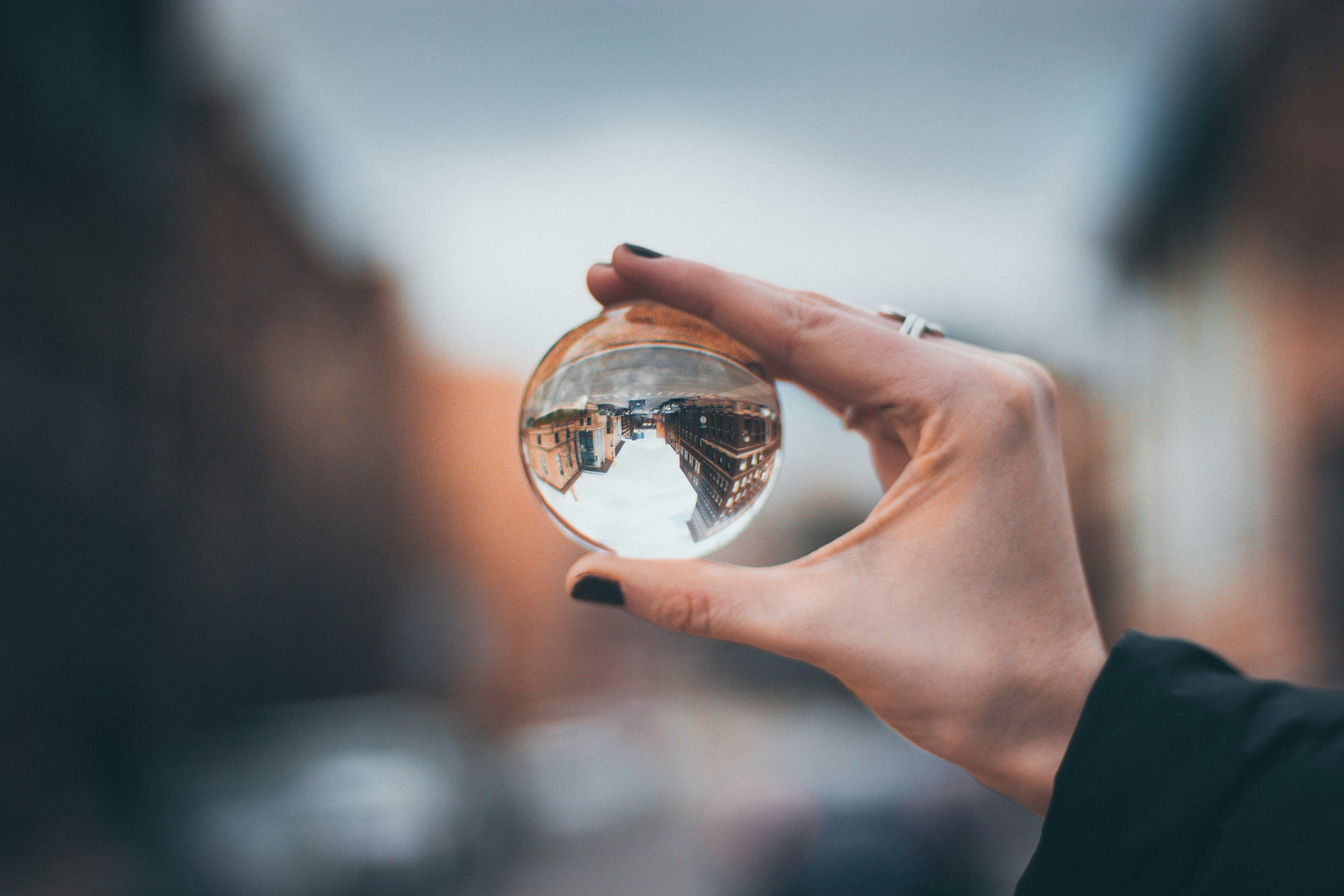 Leadership and development consultants often emphasize the importance of recognizing strengths and understanding the consequences when these strengths are overdone. Let's apply this concept to America as a collective team. While our strengths—such as efficiency, innovation, and productivity—can drive significant progress, they can also lead to unintended consequences when taken to extremes.
Leadership and development consultants often emphasize the importance of recognizing strengths and understanding the consequences when these strengths are overdone. Let's apply this concept to America as a collective team. While our strengths—such as efficiency, innovation, and productivity—can drive significant progress, they can also lead to unintended consequences when taken to extremes.
American culture is characterized by a relentless drive for efficiency, innovation, and productivity. This focus is so ingrained that it’s often described as the driving force behind our work ethic. As my son's friend from Spain put it, "In America, you live to work. In my country, and across Europe, we work to live." A quick glance at global work statistics reveals that Americans work some of the highest hours annually. This drive for efficiency, while beneficial in many ways, contributes to a culture of intense polarization, particularly in politics. This polarization can be attributed to the very strength of efficiency that has been pushed to its limits.
Our pursuit of speed and productivity has many benefits, including increased wealth and advancement. However, this strength, when overdone, manifests in various aspects of our daily lives. One of the most prevalent ways it shows up is in our propensity for bias. We actively seek and even demand it, often without realizing it. On any given day, we might ask, "Is this spicy?", "Will that shot hurt?", or "Which car should I buy?" It is often more efficient to rely on the opinions and experiences of others than to sift through all the information ourselves.
Part of the reason we are so inclined to offer and seek opinions is the endorphin boost that accompanies it. When we provide an opinion or solve a problem for someone else, it triggers a small release of endorphins, making us feel good and reinforcing the behavior. This "efficiency" is not just about saving time; it also feeds our ego and provides a sense of immediate gratification. By giving an answer or offering advice, we experience a rush of satisfaction and validation, which makes the process of dispensing opinions almost addictive. It feels good to be the one with the answer, and it’s often more gratifying than allowing someone else to find their own solution.
While seeking bias can be helpful in some situations, such as when choosing an investment or evaluating a new product, it can also lead to problems. Bias has its place; it can expedite decision-making and provide reassurance. Yet, there are instances where it’s more beneficial to rely on our own judgment. Questions like, "How do I strike the right balance with technology for my family?", "What amount of research is necessary to choose the best dog breed for my family?", or "Which candidate should I vote for?" require deeper personal reflection and independent decision-making.
The issue isn’t about having or offering opinions; it’s about transparency and accountability. Brene Brown eloquently discusses this in her concept of “the story I’m making up.” She suggests that acknowledging and owning our biases can foster better relationships. By framing our perspectives as personal interpretations rather than universal truths, we can engage in more constructive and empathetic conversations.
For educators, the stakes are even higher. Teachers play a crucial role in shaping the minds and futures of their students. Their biases, whether acknowledged or not, can significantly impact students’ educational experiences and outcomes. It is especially challenging for educators to manage their biases because their deep-seated desire to guide students towards what they believe is the "right" answer can overshadow the importance of individual student needs and perspectives. Educators must recognize that their notion of the "right" answer may not always align with what is best for each student. Embracing this can help teachers create a more inclusive learning environment that respects and nurtures diverse viewpoints and encourages independent thought.
In summary, while our cultural drive for efficiency and productivity has its merits, when this strength becomes overdone, it can amplify our biases and contribute to societal divisions. The endorphin hit we get from giving our opinions feeds into this dynamic, making us more likely to dispense advice rather than wait for others to develop their own answers. For educators, managing these biases is crucial not only for personal growth but for fostering a learning environment that supports the diverse needs of students. Truly, we should all work to the standard expected of educators, resulting in stronger, more empathetic relationships and a society where we all seek well-considered conclusions.
The Mindtrap of Rightness: Cultivating Curiosity and Embracing Diverse Perspectives in Leadership
Mindtraps, or barriers to effective leadership, are explained well by Jennifer Garvey Berger in her book, "Unlocking Leadership Mindtraps." They are dangerous habits of thinking embedded in our minds, often dominating or guiding our decision-making. One of the mindtraps she references is “rightness.”
When you meet someone in the field of education (or coaching) and ask them who they are at their core, they often describe themselves as lifelong learners. They might share openly about their zest for discovery and insatiable interest in uncovering what they don’t know and the joy of shining the light for others to see as well. This passion point for educators—shining the light and watching others brighten with new knowledge—is central to their identity.
But beware of the attractive pull and self-gratification that comes with teaching. Don’t fall into the pit of rightness. When you shine the light, who determines what is to be revealed? To your eyes, it is a butterfly. To mine, a flying caterpillar. The true learning you might foster occurs when you give me the freedom and space to come to my own conclusions.
This sounds like the poetry and authentic intention of all teachers (and coaches) until we start talking about politics. That is when adults, in particular, fall prey to satisfying our rightness and feel compelled to convey our convictions of right and wrong.
It is natural. It is a habit of mind, as Berger writes, “It’s often a self-fulfilling prophecy. We’re sure we are right, and so we don’t notice (or we discard) any data that might suggest we are wrong.” She goes on to explain, “Our experience of rightness changes the way we treat other people.”
When you speak and evidence your bias through judgment about one person or another, one candidate or another, you are not only alienating another human being but also emphasizing your own limited ability to see a bigger picture. To let go of our rightness and allow for growth, we must humble ourselves, become aware of our humanness, and deeply trust that the learner before us will see reality—for them. We must trust that the perspectives, experiences, and discoveries of others might offer something to our own learning.
What if you listened with curious discovery to my description of the flying caterpillar and learned something new?
When you hear yourself saying, "I’m open-minded and everything, but I just can’t wrap my head around this," you are really saying, "I’m stuck in my rightness at the moment." It just means you need a bit more practice cultivating curiosity and imagining possibilities greater than you already know. It does not mean someone with a diverse political perspective is flawed or ignorant.
Standing under the light together, we can all lean into conversations of possibility and see what really lies before us.

